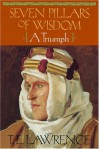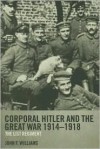Currently reading
MR. WILSON'S WAR - A HIGHLY READABLE & MAGISTERIAL BOOK

Of all the works of non-fiction I've read thus far this year, this book has the twin virtues of readability (which, given its size, means a lot) and comprehensiveness. Dos Passos shares with the reader his guiding principle he followed in crafting "Mr Wilson's War", which was as follows: "My method was to try to relate the experiences of the assorted personalities and their assorted justifications to my own recollections of childhood and youth during those years; and to seek out, wherever possible, the private letter, the unguarded entry in the diary, the newsreport made on the spur of the moment." By and large, he has succeeded, giving the reader grand views of a unique period in U.S. history (from 1901 --- with some rich insights into the first term of President William McKinley, which had begun in 1897, during which time personalities like William Jennings Bryan and Theodore Roosevelt, who was then McKinley's Assistant Secretary of the Navy, later serving as Vice President during McKinley's second term, came into prominence in the national consciousness --- to 1920, following the failure of Woodrow Wilson to convince the U.S. Senate to ratify the Versailles Treaty and join the League of Nations.
With the verve and dash of a skilled portrait painter, Dos Passos offers the reader colorful and revealing insights of several key players of the period --- e.g., Theodore Roosevelt, William Howard Taft (who followed Roosevelt as President), Woodrow Wilson, Edith Galt Wilson (Wilson's second wife), Elihu Root, Colonel Edward House (at one time, Wilson's closest confidant and 'second brain'), William Gibbs McAdoo (Wilson's son-in-law, a can-do man and perhaps the most able and effective member of Wilson's Cabinet), British Foreign Secretary Sir Edward Grey, Charles Evans Hughes (who stepped down from the Supreme Court to run against Wilson in 1916), Leonard Wood (the Army's highest ranking officer at the time of U.S. entry into the First World War in April 1917 who was a close friend of Theodore Roosevelt; both were fierce critics of Woodrow Wilson), General John J. Pershing (the commander of the American Expeditionary Force - AEF - in France during the war, who struggled mightily in insisting to both the British and French that an American Army be allowed to fight the Germans, rather than have soldiers from its ranks parceled out to fill gaps in the armies of Britain and France --- the singular exception to this was the U.S. 93rd Infantry Division [African American], which Pershing loaned to the French without demur; there the 93rd distinguished themselves in battle), Newton Baker (the Secretary of War), Robert Lansing (Wilson's Secretary of State after William Jennings Bryan had resigned the post in 1915 following a disagreement with Wilson over wartime policy vis-a-vis the Allies and Germany), British Prime Minister David Lloyd George, French Premier Georges Clemenceau (nicknamed "The Tiger" for his forceful, fiery personality), and a host of other minor - though no less fascinating - characters in the military, political, and journalistic realms --- as well as the diplomatic corps.
The reader who takes the plunge into this juicy and magisterial book will be in for a real treat. HIGHLY RECOMMENDED.














 3
3
 1
1